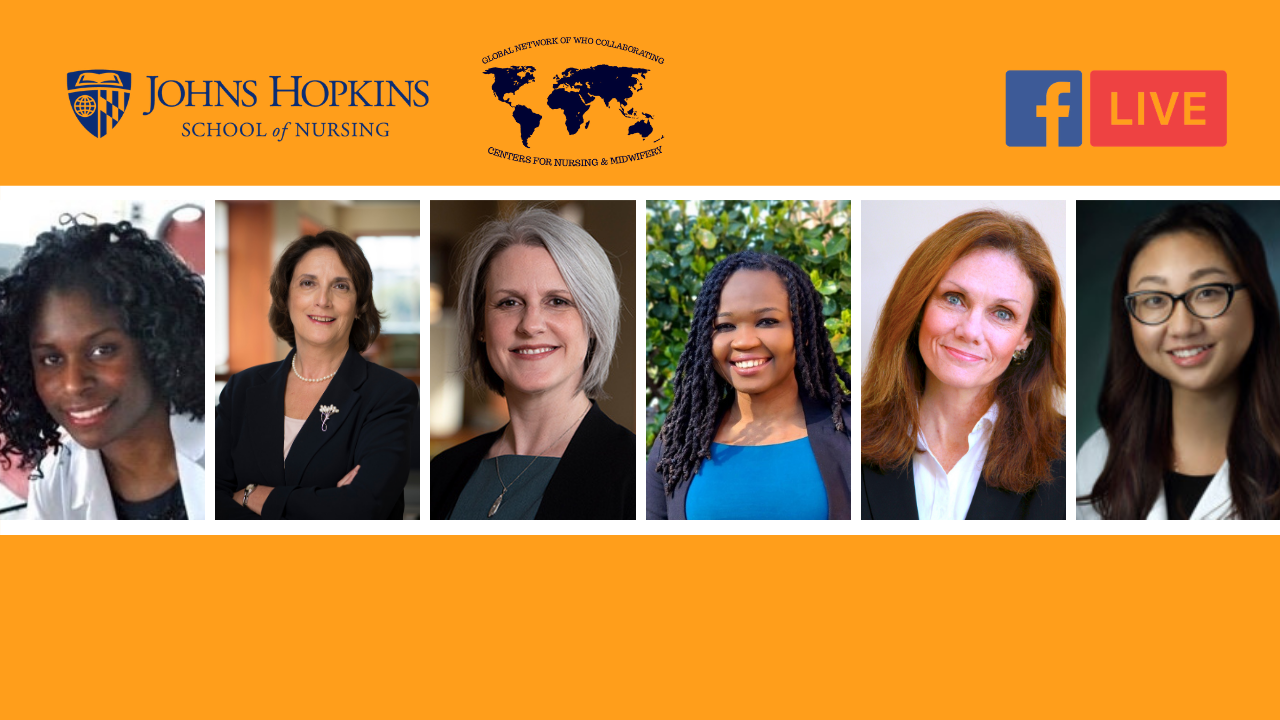The Johns Hopkins School of Nursing’s Center for Global Initiatives is talking about the World Health Organization’s World Health Day call to action: the vaccine equity declaration.
We know that COVID-19 has disrupted many aspects of our lives, but it has also shed light on the inequitable access to health care, treatments, and diagnostic testing. The limited access, or lack of thereof, will similarly impact vaccine distribution and administration particularly among low and middle-income countries. As WHO director Dr. Tedros said, “The world is on the brink of a catastrophic moral failure, and it will be paid with lives and livelihoods in the world’s poorest countries.” This event aimed to raise awareness of the barriers to vaccination, inspire us to protect our most vulnerable populations, emerge from this global pandemic stronger together.
Key Takeaways:
“Equitable vaccine distribution varies widely from state to state.”
Dr. Rita D’Aoust
“We are ONE nation acting like tiny countries with no consensus, and the most vulnerable are who suffers.”
Carissa Lawrence, PhD student
“Vaccine passports are a new structural limitation when vaccines are not yet easy to obtain.”
Dr. Michelle Patch
“Vaccine passports are particularly inequitable since some countries do not even have vaccine access yet.”
Alvine Akumbom, DNP/PhD student
About the Panelists:
Moderators:
Angela Chang Chiu, MS, RN, CHES, manager for the Center For Global Initiatives at Johns Hopkins School of Nursing.
Nancy Reynolds, PhD, MS, RN, FAAN, C-NP, is Associate Dean of Global Affairs and Director for the Center for Global Initiatives at the Johns Hopkins School of Nursing, as well as co-director for the WHO Collaborating Centre for Nursing Information and Knowledge Management and co-secretary general, Global Network of the WHO Collaborating Centers of Nursing and Midwifery. Actively involved in the WHO State of the World’s Nursing Report.
Michelle Patch, PhD, MSN, RN, APRN-CNS, ACNS-BC is an assistant professor at Johns Hopkins School of Nursing and Clinical Nurse Specialist Track Coordinator. She has extensive practical experience in emergency management and disaster response, including former service as a U.S. Navy Nurse Corps officer and current efforts staffing the Johns Hopkins Unified Command Center, the Johns Hopkins Health System’s coordinated COVID-19 response.
Rita D’Aoust, PhD, MS, RN, ACNP, ANP-BC, CNE, FAANP, FNAP, FAAN is Associate Dean of Teaching and Learning, and an associate professor at Johns Hopkins with a joint appointment in the schools of nursing and medicine. Dr. D’Aoust is an expert in interprofessional education, community service, and providing access to care for vulnerable populations. Dr. D’Aoust has long made her mark where the business of education and health care intersect. She has led advances in curriculum and classroom technology that match an understanding of ways to construct learning with the philosophy of education and a mastery of financial issues in higher education.
Alvine Akumbom, MS, RN is a second year DNP/PhD student at the Johns Hopkins School of Nursing. She is trained as a public health nurse and cares deeply about equitable access to health services and health promotion for vulnerable populations. Her doctoral work focuses on vaccine-preventable diseases and optimizing clinical outcomes for people living with HIV.
Carissa Lawrence, CNM, WHNP-BC is a first-year PhD student at the Johns Hopkins School of Nursing. She recently published op-ed “Vaccine hesitancy is no excuse for systemic racism” for the Hastings Center. Her interests lie in health equity, racism, and health advocacy. Currently, she is working to improve access to care for queer, non-binary, gender non-conforming individuals.
Read More:
- On The Pulse: International Women’s Day
- On The Pulse: Men In Nursing
- On The Pulse: The Impact of COVID-19 on Nursing
- Facebook Live: COVID-19 and the Future of Higher Education
- Facebook Live: The Border is Here, The Crisis is Real for Our Children and the Time is Now
- Facebook Live Debunks the Myths on COVID-19
